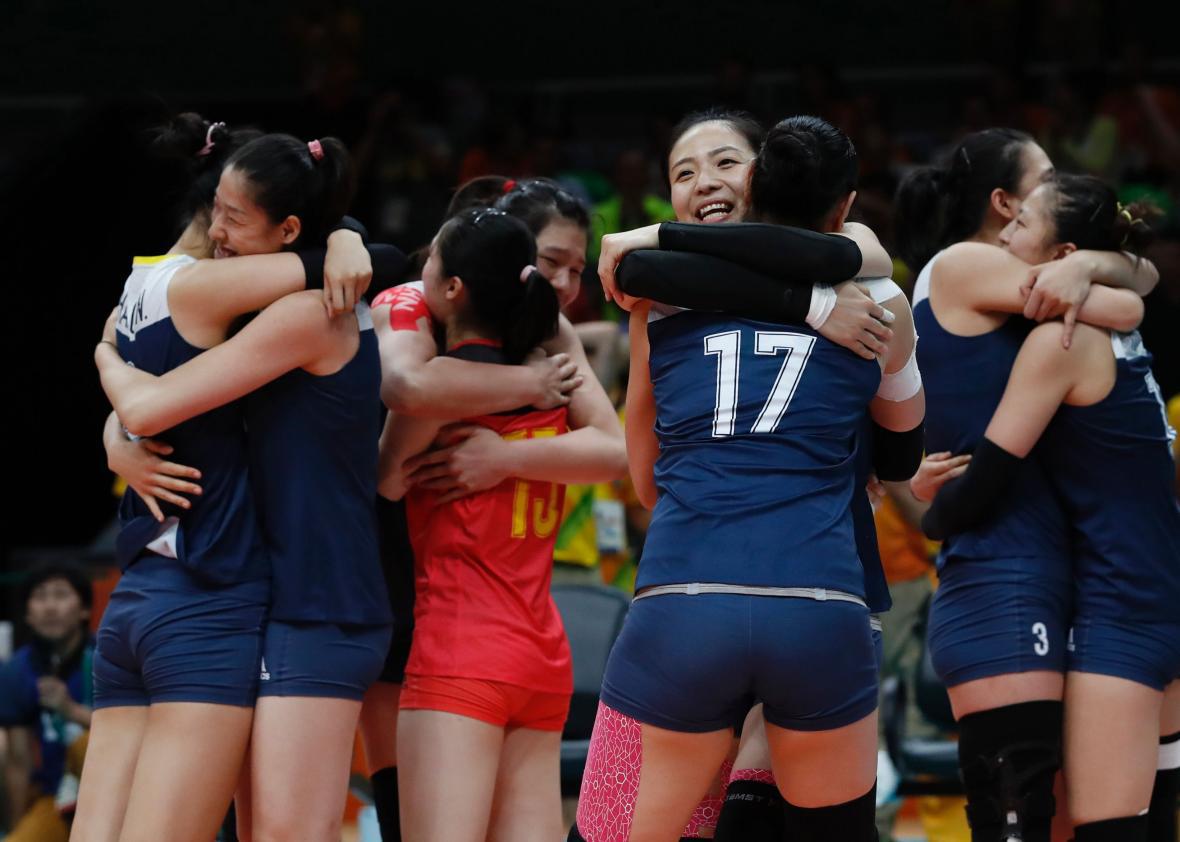If we have learned anything over the course of the 2016 Olympic Games in Rio de Janeiro, it is that Olympians like to hug. They will hug each other on the occasion of a good performance or a bad one, when there is a break in the action and when they are on the “Hug Cam.” Hugging and overexertion—those are the seemingly opposite forces that come together to form the Olympic spirit. (At least, that’s what I wrote in my dissertation. I did not pass.)
If medals were awarded in hugging, which sport’s athletes would get the gold? Here is my best attempt to give that question a healthy squeeze. I’ve taken a selection of Olympic sports and ranked them from worst to first on Slate’s proprietary hugging scale, with special credit given to sports where athletes embrace their opponents, because cross-cultural hugging is what the games are all about.
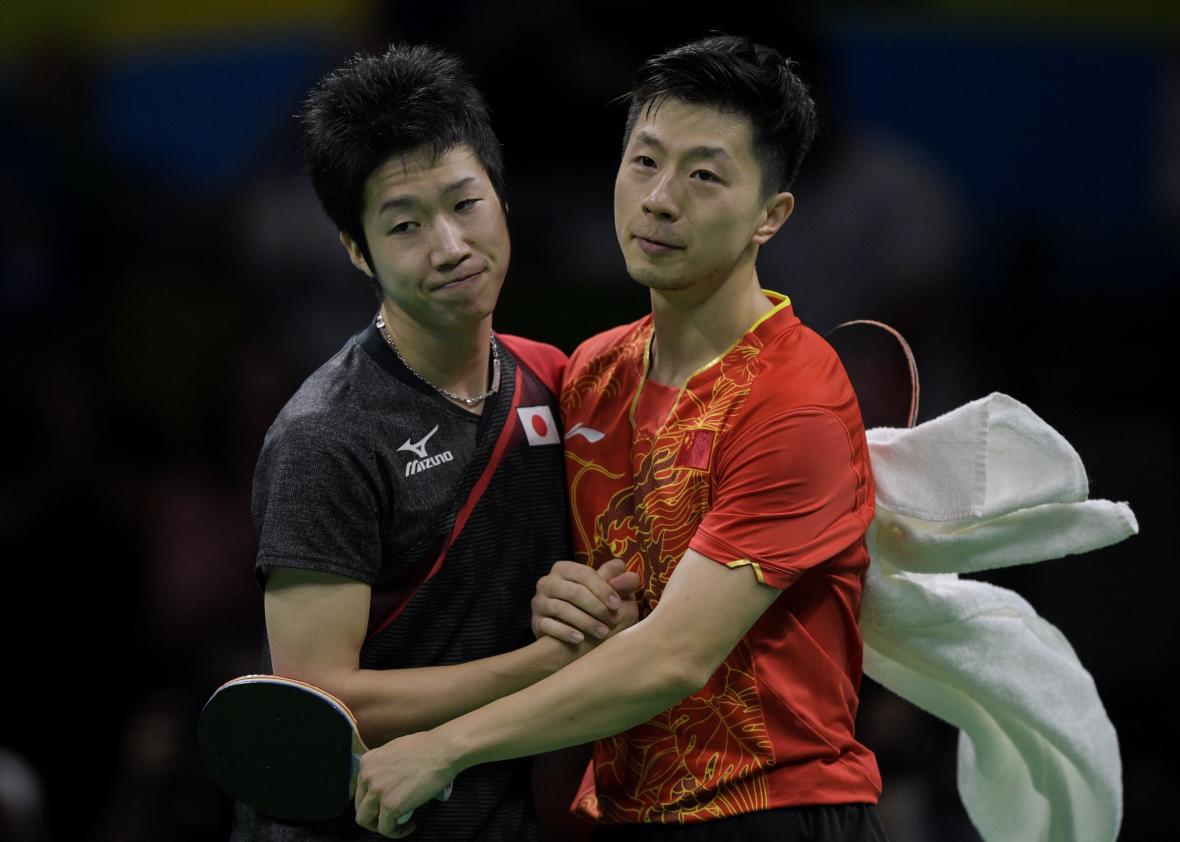
Juan Mabromata/AFP/Getty Images
Table tennis: There is not much hugging here—no dashing around the table to embrace an opponent after he or she hits a particularly nasty shot. At the end of a match, the players might shake hands, or, at most, extend a brief, wan one-armed embrace. They do not hug in full. Why do table-tennis players recoil from human contact? If I knew that, I’d be the sports psychologist for the U.S. table tennis team, a perch I would use to further my hug-related studies.
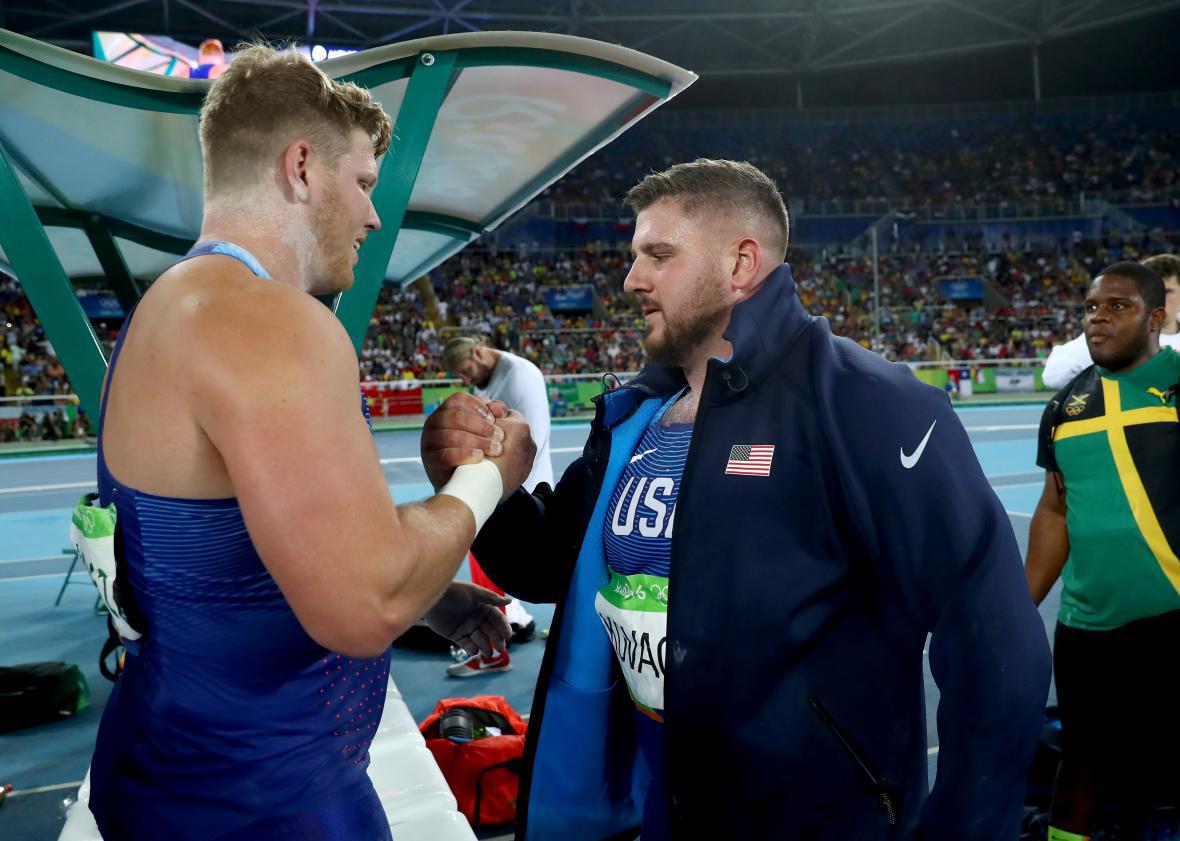
Alexander Hassenstein/Getty Images
Shot put: Do shot putters hug? As an old shot put hand myself, I can confirm that while shot putters occasionally “hug it out,” they rarely extend nonconciliatory hugs, or at least that’s how we did things in the North Suburban Conference back in the ’90s. Go Scouts!
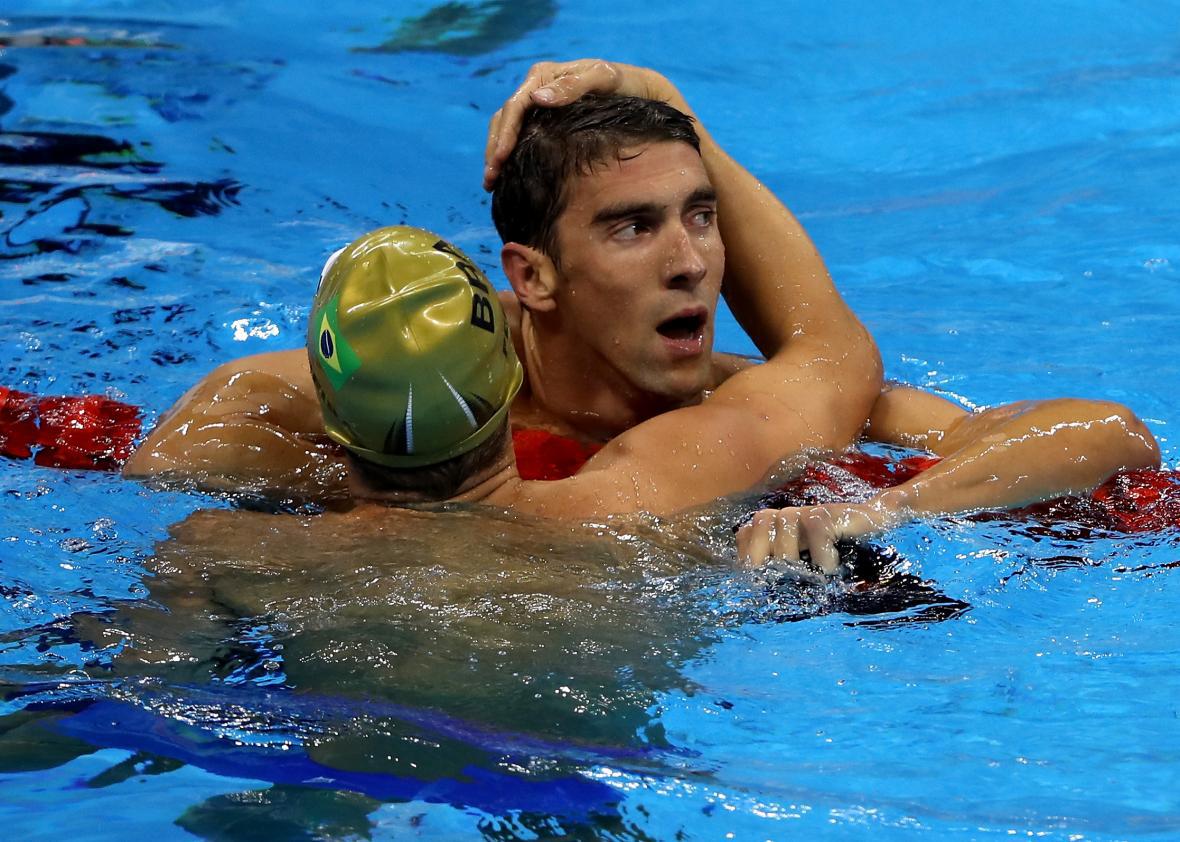
Al Bello/Getty Images
Swimming: This has been a contentious sport in Rio, its competitors more apt to preen at or finger-wag their competitors than embrace them. When hugs do happen they are lackluster and wet, a hurried waterlogged gesture. Swimmers do like to hug their own teammates during postrace celebrations and interviews, but I refuse to count these, because a hug that isn’t hugged in the heat of battle is hardly a hug at all.
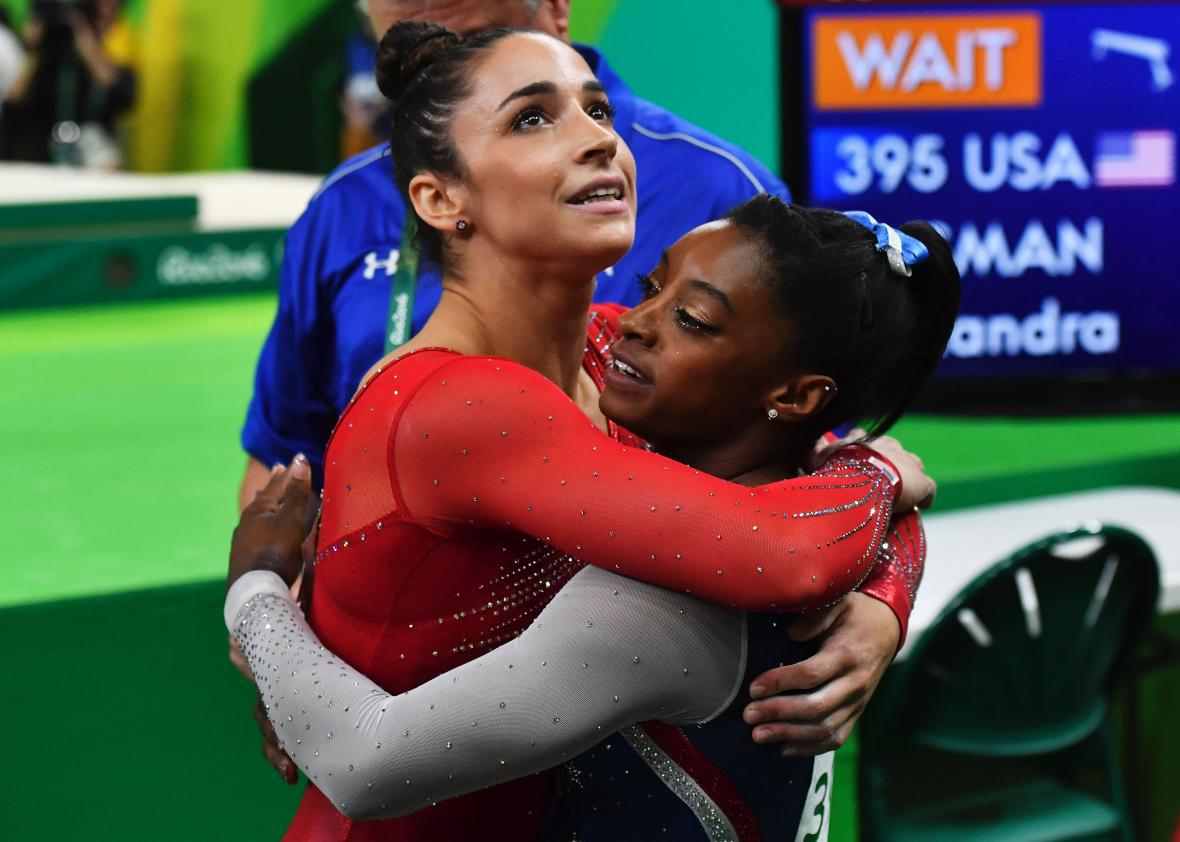
Ben Stansall/AFP/Getty Images
Gymnastics: Gymnastics is a very huggy event, though from what I can tell the hugs are usually teammate to teammate. U.S. gymnasts love to hug other U.S. gymnasts, and that is fine—there is no rule saying athletes must share the love with foreigners. But I cannot give the gymnasts full credit for being world-class huggers when the hugs they perform are so often parochial.
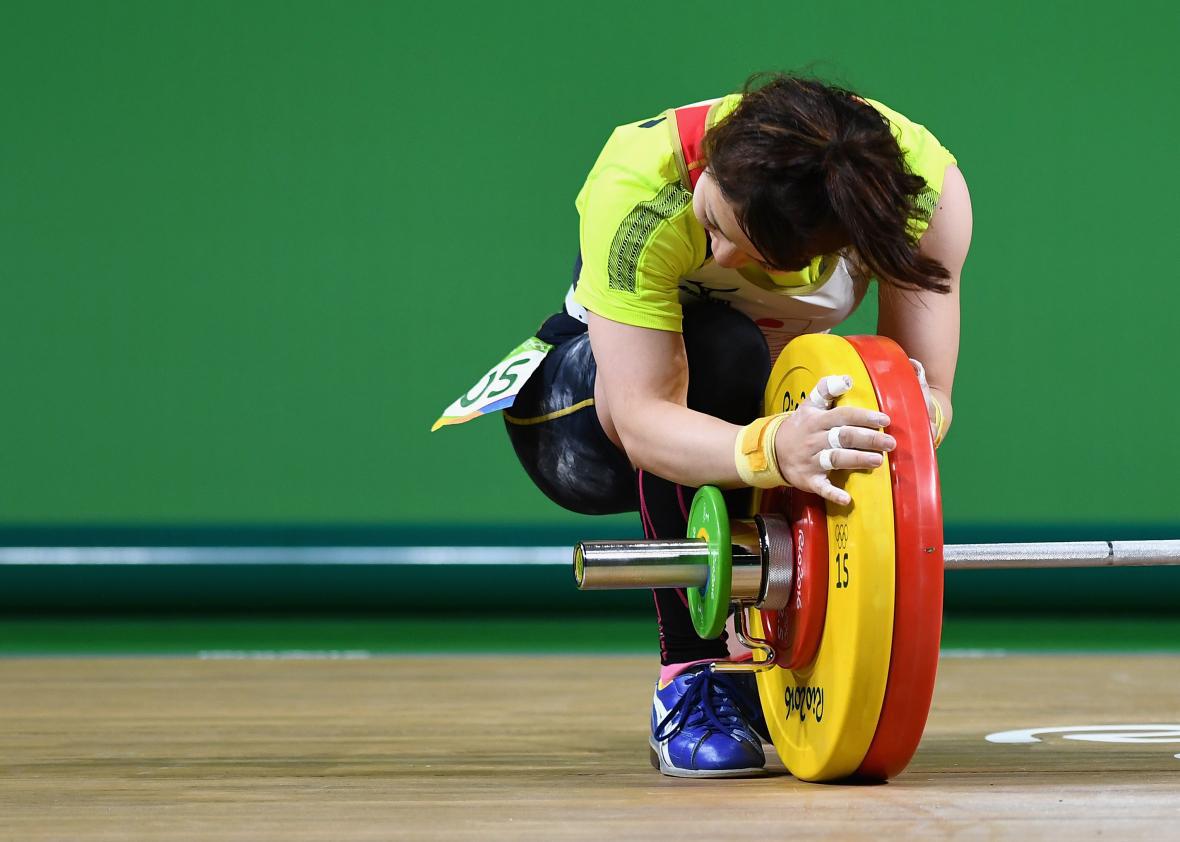
David Ramos/Getty Images
Weightlifting: As an individual sport in which competitors do not directly face off with their opponents, there is not much inter-athlete hugging going on here. But sometimes a pumped-up lifter will hug her coach, and these hugs are always very convincing and firm. You can imagine receiving one of these hugs, and you can imagine enjoying it, though you will probably be glad when it is over. Occasionally, a weightlifter will hug her barbell after completing a particularly arduous lift, which is a nice thing that reminds me of astronauts kissing the ground after returning to Earth.
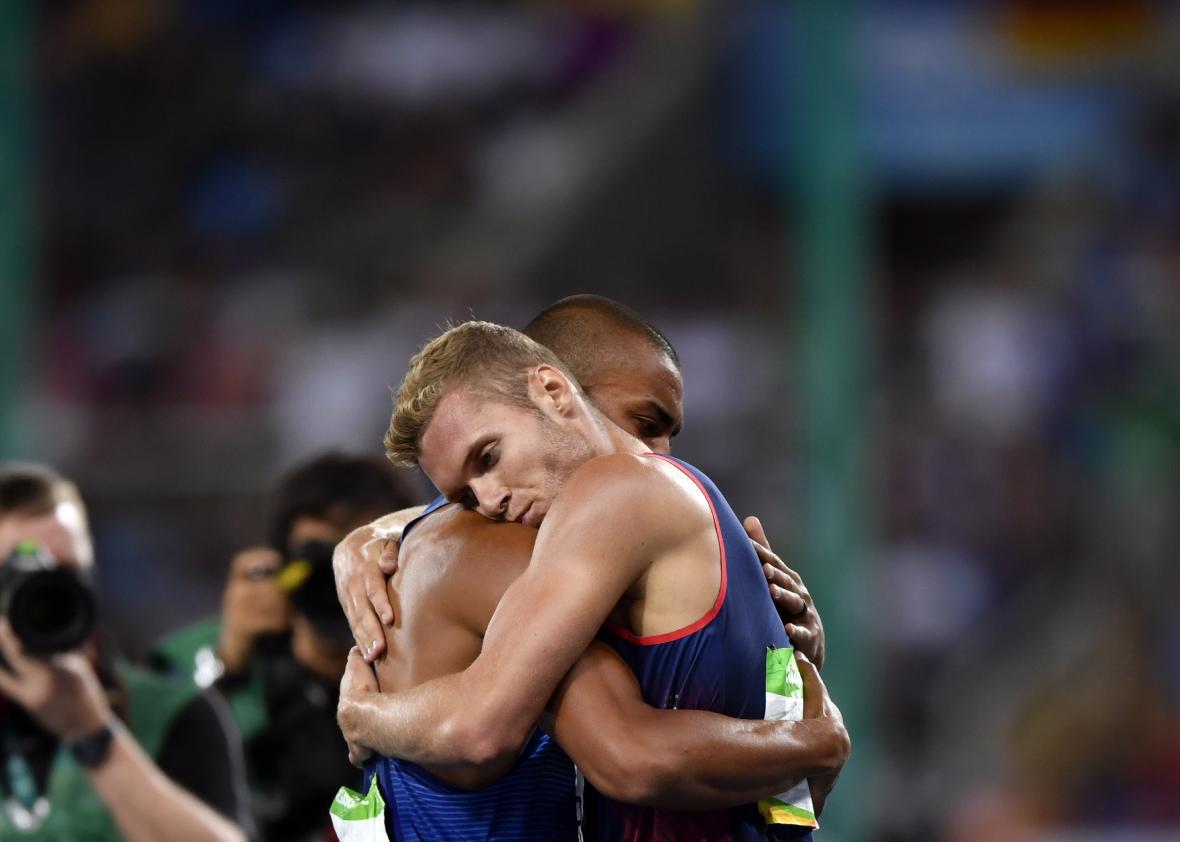
Fabrice Coffrini/AFP/Getty Images
Decathlon: Decathlon hugs are very good. Decathletes really like to hug each other and express their appreciation for each other’s arduous journey through 10 taxing events, which is nice, because there aren’t many other people in the world who care about their weird sport. All the hugging here makes me think the decathletes of the world truly respect each other. They’re probably all on the same listserv. Heptathlon hugs, for what it’s worth, are approximately 70 percent as good as decathlon hugs. Biathlon hugs, well, forget it.
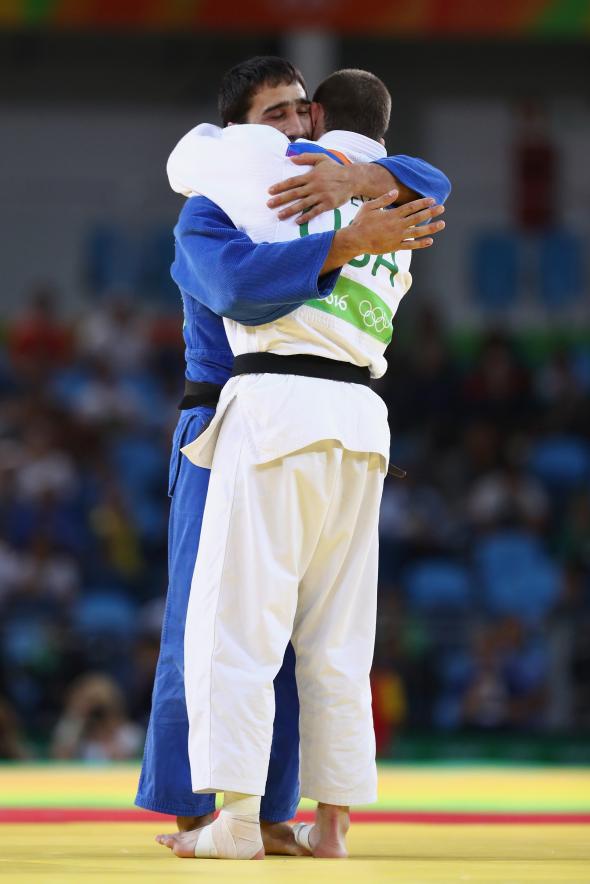
Ryan Pierse/Getty Images
Judo: Full disclosure: I haven’t watched much judo at these Olympics. But the one judo match I did watch, the gold-medal bout between American Travis Stevens and Russian Khasan Khalmurzaev, featured a truly sensational hug. After Khalmurzaev beat Stevens, the two men shared a long, soulful, clearly sincere embrace. “Judo is a different sport than most,” Stevens told ESPN later. “We train together worldwide. The Russian team has been really kind to me over the years. They invited me to their national training camps. I stayed there for two weeks here and there. So I have a bond with everybody I compete with.” The only thing better than a long, sincere Olympic hug is a long, sincere, properly contextualized Olympic hug.
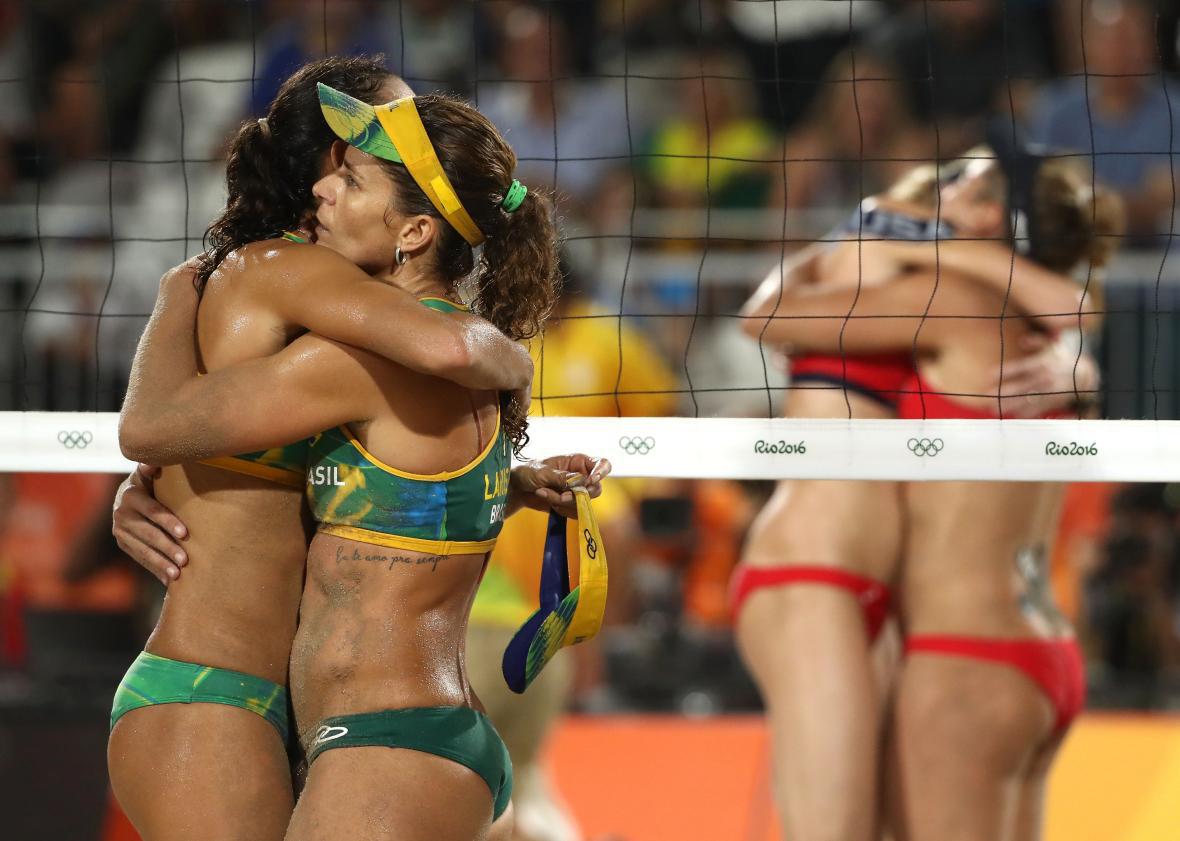
Ezra Shaw/Getty Images
Beach volleyball: If you watched the bronze-medal match between Brazil and the United States, you saw an event that was roughly 30 percent volleyball and 70 percent hugging. Beach volleyballers really, really like to hug, even moreso than they like to spike or dig. The hugging in beach volleyball is reflexive. The hugs come so frequently that a cynical observer might deem them insincere, or perfunctory. But, friends, I am not that sort of person. The sheer volume of hugs dispensed in every single beach volleyball match tells me beach volleyball merits no worse than a bronze medal in Olympic hugging. A bronze medal in hugging to beach volleyball.
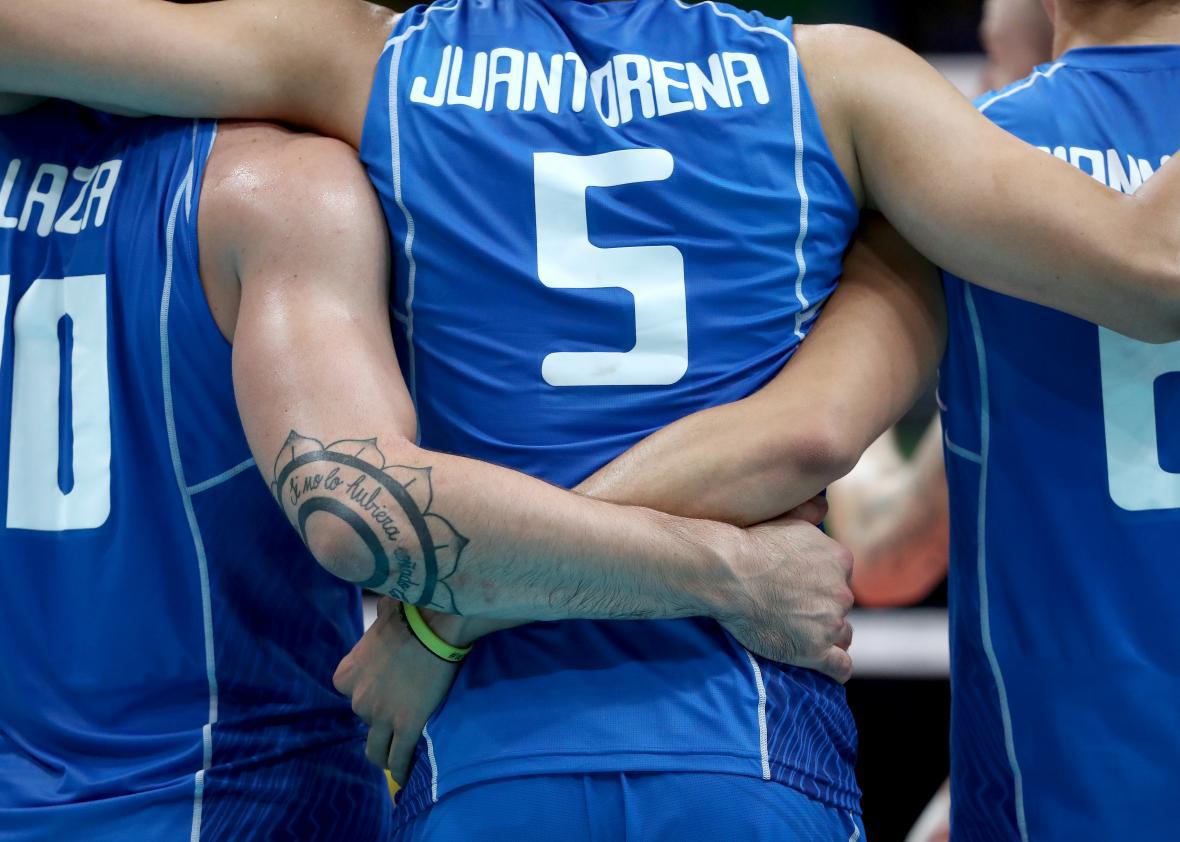
Sean M. Haffey/Getty Images
Volleyball: The hugging here is just as frequent as in beach volleyball, except there are more people on the court, which means more hugs to go around. The more hugs the better, right? That’s what I kind of argued a couple of sentences ago. Well, not necessarily. In this case, the hug volume makes it harder to keep track of who hugged whom, who didn’t hug whom, and who will hug whom next. No medal.
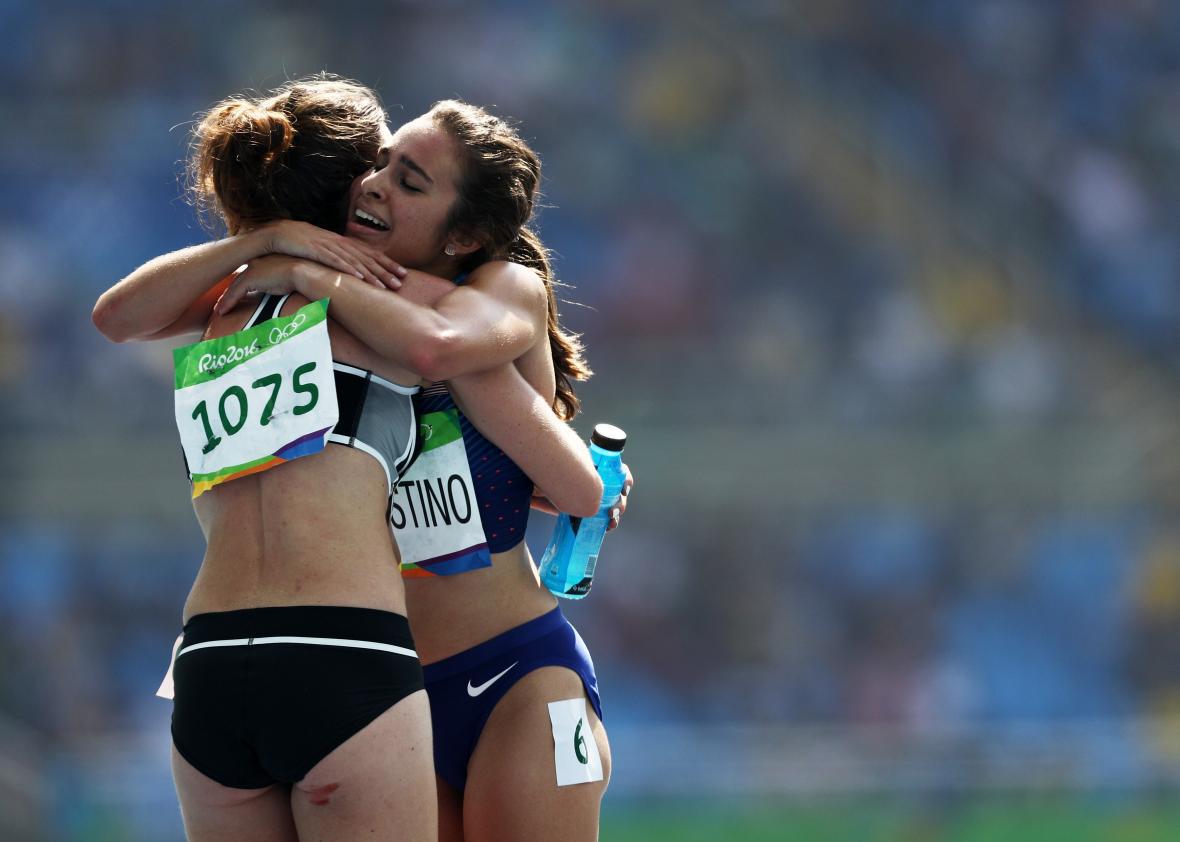
Patrick Smith/Getty Images
5,000-meter run: For all I’ve said about the overexposed sportsmanship moment between New Zealand runner Nikki Hamblin and American Abbey D’Agostino, there is no doubt the embrace they shared after both crossed the finish line of their ill-fated race was one of the best hugs of the Rio Games. It’s the hug, not the helping each other off the ground, we should all be celebrating. Great hug. Fantastic hug. A silver-medal hug.
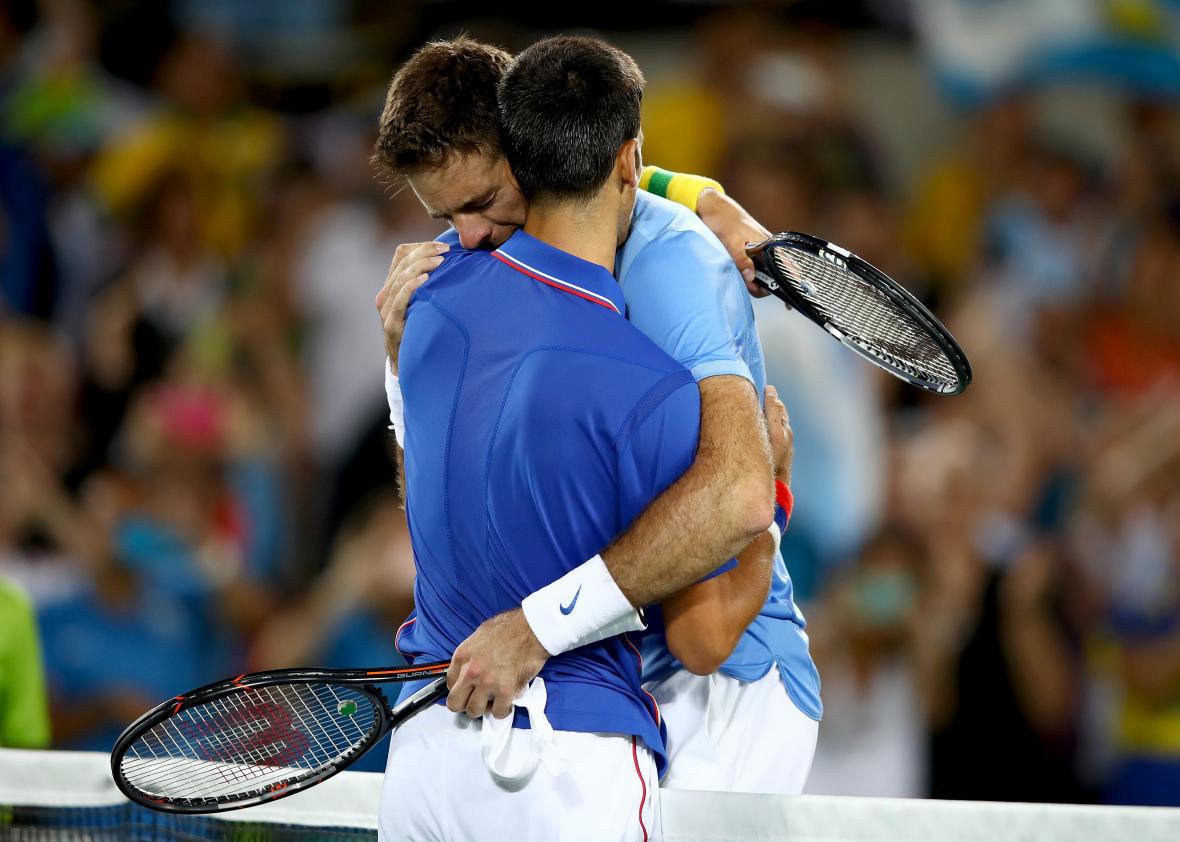
Clive Brunskill/Getty Images
Tennis: Check out this hug between Juan Martín del Potro and Novak Djokovic and tell me tennis hugs don’t rank among the very best in the Olympics. Clearly, they do. This hug came after del Potro scored a massive upset by beating the man who’s currently the top-ranked tennis player in the world. Earlier that day, del Potro got stuck in an elevator in the Olympic Village. This hug communicates all of the best Olympic feelings: exhaustion, jubilation, sportsmanship, and relief at no longer being stuck in an elevator. This was the best Olympics hug. Gold medal for you, non-table tennis.
